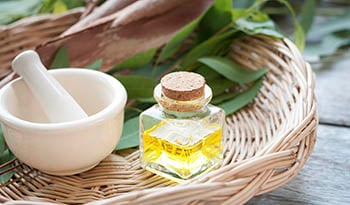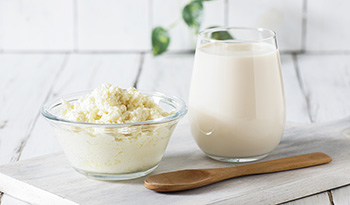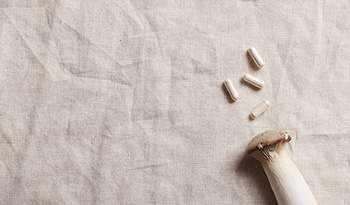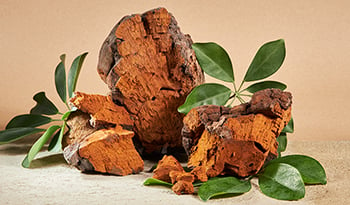12 Foods and Supplements To Help Support Heart and Immune Health
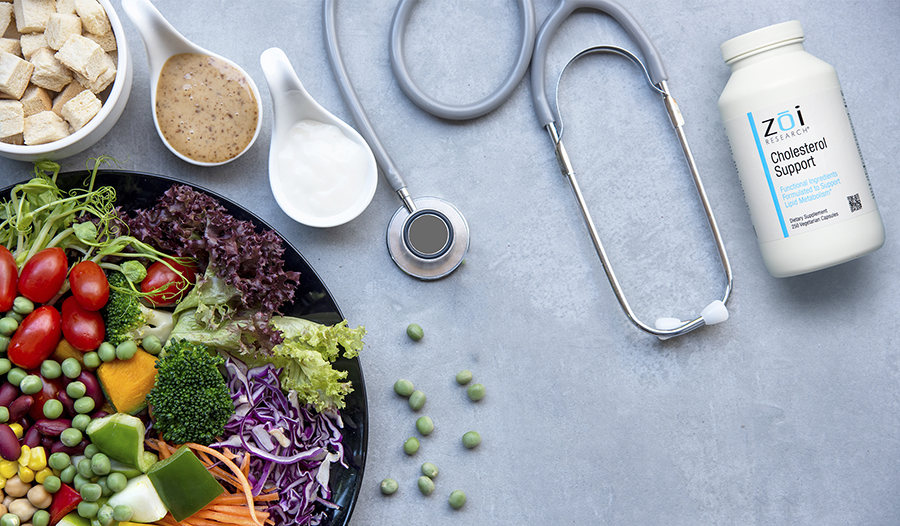
While cholesterol has gained a bad reputation, it’s actually crucial to human health. A waxy substance that exists in the blood, cholesterol has many important functions in the body. Few realize that only 20 percent of the cholesterol in your body comes from the food you eat — the other 80 percent is naturally manufactured by the liver. There are health issues that can occur if certain forms of cholesterol are too high, and this article will discuss natural strategies to help lower it.
Types of Cholesterol
Total cholesterol values are estimated by adding up three types of cholesterol present in your body:
- LDL (low-density lipoprotein) cholesterol
- HDL (high-density lipoprotein) cholesterol
- VLDL (very low-density lipoprotein, estimated as triglycerides /5) cholesterol.
For most, total cholesterol levels should be less than 200 mg/dl (5.18 mmol/L), as higher levels are an independent risk factor for heart attacks and strokes.
Cholesterol levels tend to rise as we age. Diets high in saturated fats and cholesterol, especially in the presence of simple carbohydrates (processed foods, bread, pasta, etc.), result in elevated cholesterol levels in the blood. Consumption of foods that contain trans-fatty acids should be avoided as they raise LDL cholesterol and lower the good HDL cholesterol, both of which are unwanted results that can lead to poor health outcomes.
“Good” Cholesterol vs. “Bad” Cholesterol
LDL cholesterol is often referred to as “bad cholesterol.” To help my patients remember the difference, I remind them that we want the “lousy LDL cholesterol to be lower.” Why is it so bad? When LDL is oxidized, it can cause damage to the walls of arteries, which increases the risk of developing a blocked artery, leading to a heart attack or stroke. LDL’s primary role is to transport cholesterol and triglycerides from the liver to the cells, via the arteries. It does so to assist with cellular repair and energy metabolism. However, too much LDL is not ideal.
HDL, which is made in the liver, is considered the “good cholesterol.” The higher your healthy HDL cholesterol is, the better. Why is it so good? HDL can transport artery-blocking cholesterol from an artery back to the liver where it is broken down and destroyed, which is why more is better. Those with an HDL over 50-60 mg/dl (23-25 mmol/l) have additional protection against heart disease.
While maintaining a healthy diet is important to keep your cholesterol controlled, it is not the only thing to consider. According to Dr. Andrew Weil, other factors which can increase your cholesterol are heredity, stress, smoking, excess caffeine, and little to no exercise.
Dr. Weil explains that eating foods labeled “cholesterol-free” is misleading and should be avoided. I couldn't agree more. While such foods may truly not have cholesterol in them, the sugar and simple carbohydrates they do contain encourage the body to manufacture cholesterol once they are consumed.
Why Is Cholesterol Important for Your Health?
Without cholesterol, our health would be in jeopardy. However, like most things in life, too much of something good can be harmful while not enough can also be problematic. For example, too low levels of total cholesterol in the blood increase risk for depression.
Cholesterol in the blood is required to make the following important hormones and substances:
- Vitamin D
- Cortisol
- Testosterone
- Estrogen
- Nerve coating (myelin sheath), the protective covering that shields nerves
- Bile, a green substance made by the liver that helps us absorb fatty acids and certain vitamins
Since significantly elevated levels of total cholesterol and LDL (bad) cholesterol are a risk factor for heart disease and strokes, doctors frequently prescribe cholesterol-lowering drugs like statin drugs (atorvastatin, simvastatin, etc.) to those with elevated levels.
There is great evidence that those who have heart disease benefit when they lower their total cholesterol. In addition, there is also evidence that lowering total cholesterol may help prevent heart attacks and strokes from occurring. However, some believe this benefit may be due more in part to reducing inflammation than simply lowering cholesterol.
How To Lower Cholesterol Through Diet
A well-balanced diet can help one keep cholesterol levels in the optimal range. Generous servings of vegetables and, preferably, low-sugar fruits, can be beneficial to lowering cholesterol. Consumption of foods that contain trans-fatty acids should be avoided as they raise LDL cholesterol and lower the good HDL cholesterol. These are common in processed foods.
It is recommended that most aim for 40 grams of plant-based fiber each day, which is double the average intake. This type of fiber not only helps to optimize gut health and microbiome diversity but also helps to reduce the absorption of excess cholesterol in the gut. White flour is not a source of significant fiber and should be minimized. For those who have difficulty doing so, consider adding a fiber supplement such as psyllium (5 grams 2-3 times per day) or fruit pectin supplements to your diet.
Other foods which lower cholesterol include garlic, oat bran, shiitake mushrooms, chili peppers, green tea, and dark chocolate. Nuts such as almonds, walnuts, pistachios, hazelnuts, and macadamia nuts also lower LDL cholesterol. In addition, adhering to a plant-based diet can have a beneficial effect along with regular consumption of beans and grapefruit.
The routine use of olive oil and sesame seeds can help lower cholesterol and increase healthy HDL cholesterol, according to a 2013 study. Increased consumption of fatty fish can also be useful.
Does Lifestyle Affect Cholesterol?
An active lifestyle that includes daily physical activity is crucial to a healthy metabolism. Most who are capable of doing so should aim to reach at least 10,000 steps per day. This can be done in the form of walking, hiking, jogging, or running. Resistance training using weights can be beneficial in not only maintaining muscle strength but also in helping with postural stability and bone health.
Best Supplements to Support Healthy Cholesterol Levels
It is important to note that those with known heart disease and/or history of heart attack or stroke benefit the most from cholesterol-lowering statin medications. If you’ve experienced these conditions, you should take these prescription medications unless your physician has told you otherwise.
Those with diabetes are also at higher risk for cardiovascular events, and cholesterol-lowering medications are also usually prescribed for this population. I do not recommend that anyone stop taking their cholesterol-lowering medication without first consulting with their own personal physician.
For those with high cholesterol who are otherwise in good health, the following supplements may be useful in helping to avoid needing medication in the first place. However, always consult with your physician if you have any questions — or symptoms that concern you.
1. Berberine
Berberine is extracted from the barberry (berberis vulgaris) shrub, which contains plants that are both evergreen and deciduous. Found throughout Europe, North Africa, the Middle East, and Asia, the berries produced by the barberry shrub are a rich source of vitamin C.
An active ingredient, berberine is consumed as an herbal food and supplement. It is commonly used in Traditional Chinese Medicine (TCM) and ayurvedic medicine.
A 2004 study showed that berberine could lower total cholesterol levels in a mechanism separate from statin medications. Further, a 2015 study in the Journal of Ethnopharmacology showed that berberine could be helpful in lowering blood sugar and also total cholesterol levels. In addition, the HDL (good) cholesterol was elevated.
Usual Dosage 500 mg once or twice per day.
2. Cinnamon
Cinnamon is a common cooking spice used all over the world and likely one of the most popular spices at that. Over the last decade, there has been renewed interest in cinnamon and its ability to help regulate blood sugar levels and possibly even reduce cholesterol.
A 2013 study concluded, “The consumption of cinnamon is associated with a statistically significant decrease in levels of fasting plasma glucose, total cholesterol, LDL (bad cholesterol), and triglyceride levels, and an increase in HDL (good cholesterol) levels; however, no significant effect on hemoglobin A1C was found…”.
Further, a 2019 study of patients with type 2 diabetes showed that cinnamon (500 mg twice per day for three months) significantly lowered their total cholesterol and LDL cholesterol levels.
Adding cinnamon to one’s daily diet or adding a supplement is often considered by those wanting to improve their metabolic health.
Usual dosage is 500 to 1000 mg per day.
3. Co-Enzyme Q10
Co-enzyme Q10 (CoQ10) plays an important role in the health of mitochondria, the powerhouses of our cells. Since the heart is the most active of all organs, it produces and requires the most CoQ10 in order to meet its metabolic demands. However, in those with cardiac disease, higher levels of CoQ10 are required.
A 2018 study reviewed eight trials that included 267 participants who took CoQ10 and 259 who took a placebo. All participants had evidence of coronary disease. The results showed a reduction in total cholesterol and an increase in HDL (a good thing) in those who took CoQ10.
Likewise, a 2018 study showed that those with familial hypercholesterolemia, a condition that results in extremely elevated cholesterol levels, could benefit from coenzyme Q10 supplementation.
Usual dosage is 50 to 200 mg per day.
4. Elderberry
Elderberry (Sambucus sp.), a flowering plant, has been used for hundreds of years for medicinal purposes by native populations all over the world.
A 2015 study in Food & Function that used mice showed that elderberry could help lower total cholesterol levels in the aorta while improving HDL (good) cholesterol when compared to a placebo in those mice who consumed them.
In 2014, a study in the International Journal of Food Sciences and Nutrition had similar findings. The results demonstrated a 15 percent reduction in total cholesterol, a 15 percent reduction in triglycerides, and a 25 percent reduction in LDL (bad) cholesterol. In addition, blood antioxidant levels also showed improvement. For this reason, elderberry has been consumed by many as both a food or supplement to help improve their overall metabolic profile.
Available as syrup, capsules, gummies, and lozenges.
5. Flax Seed
Flax seeds can play an important role in a healthy diet and also help to keep cholesterol levels low due to their high fiber content, according to a 2016 study. A 2018 study also discussed the evidence of flax seed consumption and its ability to lower cholesterol. The usual dose is 2-3 tablespoons daily. Flax seed should be ground up first to help improve its absorption and health benefit.
6. Garlic
Native to Asia and Northeastern Iran, garlic is now one of the world’s most consumed herbs and has numerous health benefits. Not only is it a natural antibiotic with blood-pressure-lowering properties, but it also helps lower cholesterol.
Garlic can be consumed as a food additive or can also be taken in the form of a supplement. A 2016 study showed that garlic supplements could help lower cholesterol levels in test subjects. In addition, a 2018 study concluded that garlic could also lower total cholesterol and HDL cholesterol although it did not affect HDL and triglyceride levels. Adding this herb to your diet or including a supplement to one’s daily regimen should be considered.
7. Green Tea
Green tea is one of the world’s most consumed drinks, second only to water and coffee. It is believed to have anti-obesity and anti-inflammatory effects, and it may also be an effective cholesterol-lowering agent. The main bioactive antioxidant component in green tea is a catechin also known as epigallocatechin-3-gallate (EGCG).
A 2016 study showed that green tea extract when compared to a placebo, lowered total cholesterol and LDL cholesterol levels in those who consumed it over a period of 12 weeks.
Likewise, a 2018 double-blind, placebo-controlled trial evaluated green tea extract in overweight (BMI > 25) and obese women (BMI >30). The results showed that green tea reduced LDL cholesterol in the test subjects by almost 5 percent.
Green tea is available as a tea or in the supplement formulation.
8. Krill Oil
Krill is a small, red, lobster-like creature found in the Atlantic Ocean. Krill oil is an essential fatty acid that is extracted from the crustacean. It contains the same omega-3 fatty acids as omega-3 fish oil and, for that reason, is chosen by many as an alternative. The fatty acids included in krill are docosahexaenoic acid (DHA) and eicosapentaenoic acid (EPA).
A 2004 study in Alternative Medicine Review showed krill oil consumption reduced total cholesterol levels in the blood while a 2013 study using an animal model also showed a reduction in total cholesterol levels. Ironically, fish oil does not show similar results.
9. Niacin (Vitamin B3)
Niacin, also known as vitamin B3, is involved as a cofactor in over 400 biochemical reactions in the body, primarily helping with energy metabolism by aiding the conversion of food into energy and repairing DNA, the molecule that carries our unique genetic information.
Without adequate niacin in our diet, we would not be able to break down carbohydrates, proteins, or fats.
The Mayo Clinic considers niacin a safe alternative to lower cholesterol and raise good HDL cholesterol in those who are unable to take a statin medication such as atorvastatin (Lipitor) or simvastatin (Simvastatin). However, there is not sufficient evidence to show that niacin lowers either total cholesterol or LDL cholesterol
10. Red Yeast Rice
Red yeast rice (RYR) has been used for almost 2,300 years. It originated in China and has been used as both a food coloring and a medicinal herb. In around 800 AD in China, it was taken internally to “invigorate the body, aid in digestion and revitalize the blood.”
A 2014 study that reviewed 13 other studies with a combined total of 809 patient results showed red yeast rice lowered total cholesterol, LDL (bad) cholesterol, and triglycerides. However, it did not raise HDL (good) cholesterol.
Similar findings came from a 2015 study, leading researchers to conclude “…RYR might be a safe and effective treatment option for dyslipidemia (high cholesterol) and cardiovascular risk reduction in statin-intolerant patients.” To translate: RYR could not only lower cholesterol but may reduce the risk of heart attacks in patients who could not tolerate cholesterol-lowering statin drugs.
11. Plant Sterols
Phytosterols, also referred to as plant sterols or stanols are plant-created chemicals structurally similar to cholesterol. Ironically, when consumed, they help lower cholesterol in humans by blocking the absorption of food-based cholesterol in the intestine. Phytosterols do not affect the cholesterol made by the body.
A 2008 study showed that plant sterols could lower LDL cholesterol by five to 15 percent. Others have shown similar findings, including a 1999 study which showed a 10 percent reduction in total cholesterol and a 13 percent reduction in LDL cholesterol.
12. Spirulina
Spirulina is considered a superfood by many. It is an easily digestible nutritional supplement, which belongs to a family of blue-green algae and can be taken in a pill or powder form. Spirulina comes from a type of bacteria scientists call cyanobacterium, specifically arthrospira platensis.
A study in 2014 showed that one gram of spirulina taken daily could lower total cholesterol by 16 percent when taken for 12 weeks. It also lowered triglycerides and LDL (bad) cholesterol. In addition, a 2015 study confirmed spirulina’s cholesterol-lowering benefits. Taking spirulina in addition to prescription cholesterol-lowering medications is acceptable.
References:
- 80% of cholesterol is made in the liver, accessed October 31st, 2017. https://www.health.harvard.edu/heart-health/how-its-made-cholesterol-production-in-your-body
- Weil, Andrew, Natural Health, Natural Medicine. Page 50
- Kong W, Wei J, Abidi P, Lin M, Inaba S, Li C, Wang Y, Wang Z, Si S, Pan H, Wang S, Wu J, Wang Y, Li Z, Liu J, Jiang JD. Berberine is a novel cholesterol-lowering drug working through a unique mechanism distinct from statins. Nat Med. 2004 Dec;10(12):1344-51.
- J Ethnopharmacol. 2015 Feb 23;161:69-81. doi: 10.1016/j.jep.2014.09.049. Epub 2014 Dec 10.
- Allen RW, Schwartzman E, Baker WL, Coleman CI, Phung OJ. Cinnamon use in type 2 diabetes: an updated systematic review and meta-analysis. Ann Fam Med. 2013;11(5):452-9.
- Zare R, Nadjarzadeh A, Zarshenas MM, Shams M, Heydari M. Efficacy of cinnamon in patients with type II diabetes mellitus: A randomized controlled clinical trial. Clin Nutr. 2019 Apr;38(2):549-556.
- Jorat MV, Tabrizi R, Mirhosseini N, et al. The effects of coenzyme Q10 supplementation on lipid profiles among patients with coronary artery disease: a systematic review and meta-analysis of randomized controlled trials. Lipids Health Dis. 2018;17(1):230. Published 2018 Oct 9.
- Food Funct. 2015 Apr;6(4):1278-87.
- Int J Food Sci Nutr. 2014 Sep;65(6):740-4. doi: 10.3109/09637486.2014.898256. Epub 2014 Mar 13.
- Surampudi P, Enkhmaa B, Anuurad E, Berglund L. Lipid Lowering with Soluble Dietary Fiber. Curr Atheroscler Rep. 2016 Dec;18(12):75.
- Parikh M, Netticadan T, Pierce GN. Flaxseed: its bioactive components and their cardiovascular benefits. Am J Physiol Heart Circ Physiol. 2018 Feb 1;314(2):H146-H159.
- Ried K. Garlic Lowers Blood Pressure in Hypertensive Individuals, Regulates Serum Cholesterol, and Stimulates Immunity: An Updated Meta-analysis and Review. J Nutr. 2016 Feb;146(2):389S-396S.
- Sun YE, Wang W, Qin J. Anti-hyperlipidemia of garlic by reducing the level of total cholesterol and low-density lipoprotein: A meta-analysis. Medicine (Baltimore). 2018 May;97(18):e0255.
- Molecules. 2016 Sep 29;21(10). pii: E1305. Green tea anti-obesity effects
- Chen IJ, Liu CY, Chiu JP, Hsu CH. Therapeutic effect of high-dose green tea extract on weight reduction: A randomized, double-blind, placebo-controlled clinical trial. Clin Nutr. 2016 Jun;35(3):592-9.
- Huang LH, Liu CY, Wang LY, Huang CJ, Hsu CH. Effects of green tea extract on overweight and obese women with high levels of low density-lipoprotein-cholesterol (LDL-C): a randomised, double-blind, and cross-over placebo-controlled clinical trial. BMC Complement Altern Med. 2018 Nov 6;18(1):294.
- Altern Med Rev 2004;9(4):420-428
- Li, D.-M., Zhou, D.-Y., Zhu, B.-W., Chi, Y.-L., Sun, L.-M., Dong, X.-P., Qin, L., Qiao, W.-Z. and Murata, Y. (2013), Effects of krill oil intake on plasma cholesterol and glucose levels in rats fed a high-cholesterol diet. J. Sci. Food Agric., 93: 2669–2675.
- Accessed August 21, 2018 https://www.mayoclinic.org/drugs-supplements-niacin/art-20364984
- https://en.wikipedia.org/wiki/Red_yeast_rice#cite_ref-4
- PLoS One. 2014 Jun 4;9(6):e98611. doi: 10.1371/journal.pone.0098611. eCollection 2014.
- A bumweis SS, Barake R, Jones PJ. Plant sterols/stanols as cholesterol lowering agents: A meta-analysis of randomized controlled trials. Food Nutr Res. 2008;52:10.3402
- Moghadasian MH, Frohlich JJ. Effects of dietary phytosterols on cholesterol metabolism and atherosclerosis: clinical and experimental evidence. Am J Med. 1999 Dec;107(6):588-94.
- J Sci Food Agric. 2014 Feb;94(3):432-7. doi: 10.1002/jsfa.6261. Epub 2013 Jul 10.
- Biomed Res Int. 2015;2015:486120. doi: 10.1155/2015/486120. Epub 2015 Jan 22.
DISCLAIMER:This Wellness Hub does not intend to provide diagnosis...
















































































 Table of Contents
Table of Contents








